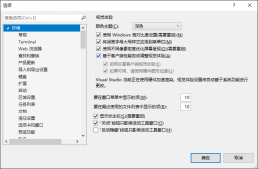代码地址
https://github.com/gongluck/Code-snippet/tree/master/cpp/code%20conversion
需求
编码转换在实际开发中经常遇到,通常是ANSI、Unicode和Utf-8之间相互转换。实现也有很多种,有查表法、使用C++11、使用boost、使用系统API。C++11和boost几乎可以实现一套代码,在linux和windows都能使用,但实际会有很多坑,相当于代码几乎不改,但是要改一下系统环境。所以有一种实现就是判断系统的版本,然后选择不同的系统api进行编码转换。
实现
目前只实现Windows下的编码转换,以后需要在linux下使用编码转换再做补充。windows下的编码转换基本围绕unicode做处理。例如ANSI->UTF-8,就是先将ANSI->unicode,再将unicode->UTF-8。
|
1
2
3
4
5
6
7
8
9
10
11
12
13
14
15
16
17
18
19
20
21
22
23
24
25
26
27
28
29
30
31
32
33
34
|
// convert.h/* * @Author: gongluck * @Date: 2020-03-23 16:06:23 * @Last Modified by: gongluck * @Last Modified time: 2020-03-23 16:09:30 */// Character encoding conversion#pragma once#include <string>namespace gconvert{// ANSI->Unicodeint ansi2uni(const std::string& ansi, std::wstring& uni);// Unicode->ANSIint uni2ansi(const std::wstring& uni, std::string& ansi);// UTF8->Unicodeint utf82uni(const std::string& utf8, std::wstring& uni);// Unicode->UTF8int uni2utf8(const std::wstring& uni, std::string& utf8);// ANSI->UTF8int ansi2utf8(const std::string& ansi, std::string& utf8);// UTF8->ANSIint utf82ansi(const std::string& utf8, std::string& ansi);} // namespace gconvert |
|
1
2
3
4
5
6
7
8
9
10
11
12
13
14
15
16
17
18
19
20
21
22
23
24
25
26
27
28
29
30
31
32
33
34
35
36
37
38
39
40
41
42
43
44
45
46
47
48
49
50
51
52
53
54
55
56
57
58
59
60
61
62
63
64
65
66
67
68
69
70
71
72
73
74
75
76
77
78
79
80
81
82
83
84
85
86
87
88
89
90
91
92
93
94
95
96
97
98
99
100
101
102
103
104
105
106
107
108
109
110
111
112
113
114
115
116
117
118
119
120
121
122
|
//convert.cpp/* * @Author: gongluck * @Date: 2020-03-23 16:13:01 * @Last Modified by: gongluck * @Last Modified time: 2020-03-23 16:34:50 */#include "convert.h"#include <iostream>#ifdef _WIN32#include <windows.h>#endifnamespace gconvert{#ifdef _WIN32 static int multi2uni(const std::string& multi, std::wstring& uni, UINT code) { auto len = MultiByteToWideChar(code, 0, multi.c_str(), -1, nullptr, 0); if (len <= 0) { std::cerr << __FILE__ << " : " << __LINE__ << " : " << GetLastError() << std::endl; return -1; } WCHAR* buf = new WCHAR[len]; if (buf == nullptr) { std::cerr << __FILE__ << " : " << __LINE__ << " : " << "can not new buf, size : " << len << std::endl; return -2; } len = MultiByteToWideChar(code, 0, multi.c_str(), -1, buf, len); uni.assign(buf); delete[]buf; buf = nullptr; return len; } static int uni2multi(const std::wstring& uni, std::string& multi, UINT code) { auto len = WideCharToMultiByte(code, 0, uni.c_str(), -1, nullptr, 0, nullptr, nullptr); if (len <= 0) { std::cerr << __FILE__ << " : " << __LINE__ << " : " << GetLastError() << std::endl; return -1; } CHAR* buf = new CHAR[len]; if (buf == nullptr) { std::cerr << __FILE__ << " : " << __LINE__ << " : " << "can not new buf, size : " << len << std::endl; return -2; } len = WideCharToMultiByte(code, 0, uni.c_str(), -1, buf, len, nullptr, nullptr); multi.assign(buf); delete[]buf; buf = nullptr; return len; }#endif// ANSI->Unicodeint ansi2uni(const std::string& ansi, std::wstring& uni){#ifdef _WIN32 return multi2uni(ansi, uni, CP_ACP);#endif return 0;}// Unicode->ANSIint uni2ansi(const std::wstring &uni, std::string &ansi){#ifdef _WIN32 return uni2multi(uni, ansi, CP_ACP);#endif return 0;}// UTF8->Unicodeint utf82uni(const std::string& utf8, std::wstring& uni){#ifdef _WIN32 return multi2uni(utf8, uni, CP_UTF8);#endif return 0;}// Unicode->UTF8int uni2utf8(const std::wstring& uni, std::string& utf8){#ifdef _WIN32 return uni2multi(uni, utf8, CP_UTF8);#endif return 0;}// ANSI->UTF8int ansi2utf8(const std::string &ansi, std::string &utf8){ std::wstring uni; auto len = ansi2uni(ansi, uni); if (len <= 0) { return -3; } return uni2utf8(uni, utf8);}// UTF8->ANSIint utf82ansi(const std::string &utf8, std::string &ansi){ std::wstring uni; auto len = utf82uni(utf8, uni); if (len <= 0) { return -3; } return uni2ansi(uni, ansi);}} // namespace gconvert |
|
1
2
3
4
5
6
7
8
9
10
11
12
13
14
15
16
17
18
|
//testcode#include <iostream>#include "../code conversion/convert.h"int main(){ std::string ansi = "你好,世界!"; std::wstring uni; std::string utf8; ret = gconvert::ansi2uni(ansi, uni); ret = gconvert::ansi2utf8(ansi, utf8); ret = gconvert::uni2ansi(uni, ansi); ret = gconvert::uni2utf8(uni, utf8); ret = gconvert::utf82ansi(utf8, ansi); ret = gconvert::utf82uni(utf8, uni); return 0;} |
以上就是C++实现编码转换的示例代码的详细内容,更多关于C++实现编码转换的资料请关注服务器之家其它相关文章!
原文链接:https://cloud.tencent.com/developer/article/1604693
















